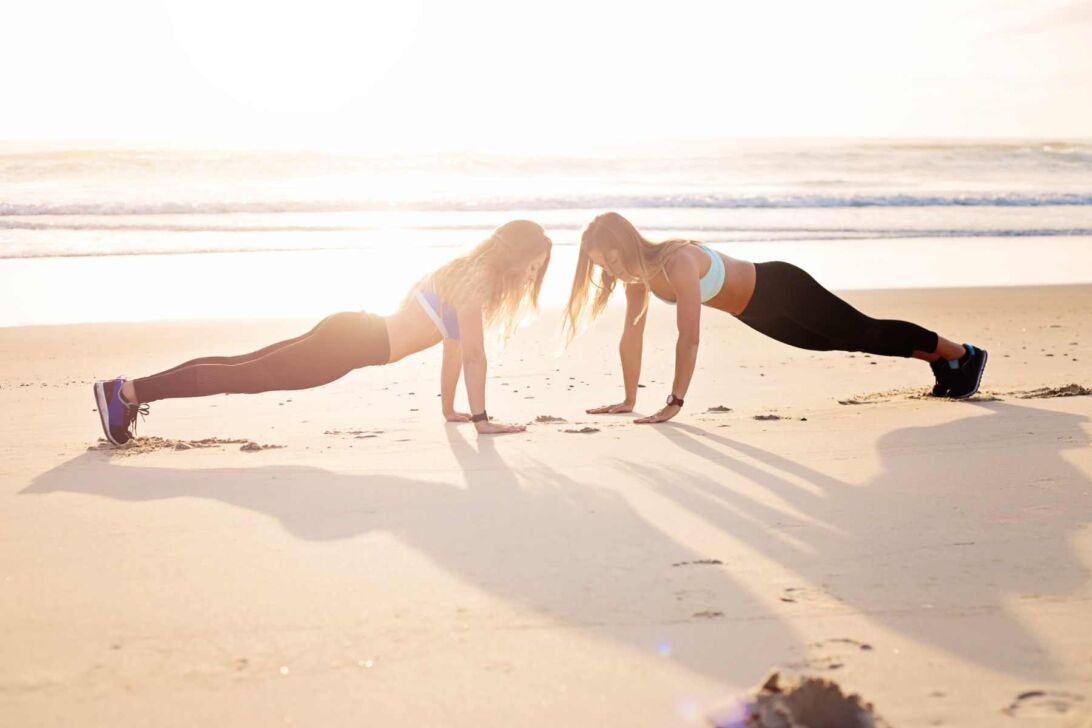Need a mental health boost? Maybe you’re having a bad day, stressed, feeling incompetent, feeling incapable, or in a poor mood. Treat yourself to a boost of self-esteem and improve your mood tremendously in just 5 minutes. This proven method will get you feeling better immediately and last for several hours. It’s called green exercise.
Green exercise is the term used to describe physical activity in a natural environment. In the last decade, numerous studies have shown green exercise provides greater physical and mental benefits than physical activity or nature alone. Green exercise has been found to be more restorative and likely to increase frequency of exercising compared to indoor activities, and provides both short and long-term benefits. Benefits include physical activity, reduction in obesity, as well as improved attention, mental health and immune function. Whether you intentionally exercise, like cycling or swimming or get incidental exercise, like walking to the store, visiting a neighborhood park or gardening, you can reap the benefits of green exercise.
One study in 2010 looked at duration of exercise, intensity of exercise, type of natural environment and age to identify the benefits to self-esteem and mood. Self-esteem and mood are often used as measures of well-being and mental health. Self-esteem, if low, is related to more mental health disorders like depression and anxiety while high self-esteem is related to improved healthy behaviors, like exercise and healthy diets. Mood is also a good indicator of mental health in that it influences feelings of happiness or coping with stress. It’s linked to physical health and our immune systems or the onset of disease.
The study found that exercise duration of just 5 minutes a day had the most effect on self-esteem and mood. Exercising up to one hour, half a day or a whole day, had less effect. And, those 5 minutes made a bigger impact on mood than self-esteem. While the biggest benefit was 5 minutes a day, the effects were still positive over time, just not as sizeable.
Great news, in terms of intensity of workout, researchers found that even light exercise resulted in positive improvements in self-esteem. In fact, it had the biggest benefit. The more individuals exercised, the lower the effect. In terms of mood, the benefits were at either end of the spectrum, good results for light and vigorous exercise, with moderate exercise having less of an effect.
And, you don’t have to venture into a wild habitat. It turns out that any green environment had a good effect. To get the most from your green environment, include a water element. Exercising waterside (river, lake) was found to provide higher potential benefits.
If you think you’ve outgrown the benefits, think again. Overall, green exercise has positive effects regardless of your age, but in terms of self-esteem, the older you get, the less the benefit. In terms of mood, the greatest benefit is seen in the middle ages, 31-70.
Further, green exercise reduces stress, depression, and blood pressure, while increasing self-esteem, mood, and wellbeing. And these benefits were seen across the board, from children and adolescents to adults, including adults with dementia and those with physical or mental ill health. The well-being improvements from green exercise include improved life expectancy, recovery from illness, and positive health behavior. From a personal experience, I know that my body feels better when I exercise routinely. And, I feel better mentally, when I do that outdoors.
But what happens over time? Does green exercise continue to pay dividends? For an answer to that, one study in 2020 looked at the benefits of 12 weeks to 1 year exercise spans. “Regular Doses of Nature: The Efficacy of Green Exercise Interventions for Mental Wellbeing.” published in the International journal of environmental research and public health in 2020 analyzed data sets from various studies to project the effects of green exercise over a medium time-frame (12 weeks to 1 year). Their findings reinforced the ideas that green exercise had longer term benefits.
The study showed benefits to all participants but those with mental illness saw a greater improvement than those who considered themselves mentally healthy. And those with poor mental health also saw greater reductions in stress than those that were considered healthy. In fact, 61% of the lower wellbeing participants moved into the average wellbeing group by the end of the 12 week project. This non pharmaceutical approach to improving wellbeing could well have positive neurological effects although the study doesn’t identify the cause of the improvements specifically, but it’s presumed that the social aspects of green exercise and the sense of purpose and achievement are likely the reasons.
If the idea of running around outside turns you off, I’ve got an alternative for you. Studies have been done on horticultural activity and found similar benefits to green exercise and in fact, improvements in dementia patients as well. Not surprising considering horticultural activities are outdoors in green areas, tend to require physical exertion, interaction with nature, and often include some social interaction. Many areas have gardening clubs which might be just the answer to gain improved wellbeing.
These studies show that a very small investment of time and energy, can reap great rewards for mental health issues. The challenge for many is establishing a routine and discipline. Some ways to do this:
– Set your alarm on your phone
– Use gamification. Set an exercise goal. Establish points, or set aside dollars for each day you exercise, then treat yourself to something when you reach your goal.
– Track your activity. Nothing provides better results than something measured.
– Get a friend to join you. Get the added social benefits.
– Join a club, like a bicycling club.
– Create a local walking group.
– Challenge a friend in another town to walk with you virtually, and talk on your phone
– Set aside walks for calling friends
– Join a hiking club or activity, like those through your local REI co-op.
– Spend time camping.
– Get up earlier to get time outside.
– Play with your kids outside.
With the COVID 19 sheltering in place, I’ve never seen more people take time to walk and play outside with their children. It’s beautiful to see and I hope we make the permanent shift to healthier lifestyles that are slower paced and more family focused.
Incorporating nature into your exercise routine needn’t be a chore. Walking in the woods, or on the beach, using fitness trails, bicycling, yoga at the park, yoga on floats (water), kayaking, rock climbing, beach combing, playing tag, kicking a soccer ball, rollerblading, play basketball with neighbors, canyoneering, geocaching, are some options. If you need more, take a look at the list here, https://www.activeoutdoors.info/outdoor-activities-list/
Still not sold on the idea? Consider the other great benefits you get from exercise besides improved mood and self-esteem, the benefits of fitness on your overall health, improved body image, maybe weight loss, improved muscle tone, maintaining your weight as you age, Vitamin D from sun exposure, social benefits of seeing people you know outside or meeting new people, opportunity to unplug or get away from the house, time to spend with family away from distractions, time to teach or introduce children to benefits of exercise, spend time with elders who need to get out as well and you can help them. Or my favorite reason, because the dog needs exercise. Do it for the dog.
Reference:
Rogerson, Mike et al. “Regular Doses of Nature: The Efficacy of Green Exercise Interventions for Mental Wellbeing.” International journal of environmental research and public health vol. 17,5 1526. 27 Feb. 2020, doi:10.3390/ijerph17051526
Barton, Jo and Pretty, Jules. “What is the Best Dose of Nature and Green Exercise for Improving Mental Health? A Multi-Study Analysis.” Environ. Sci. Technol. 2010, 44, 10, 3947–3955. Publication Date: March 25, 2010. https://doi.org/10.1021/es903183r
ABOUT THE AUTHOR

Nikita Mears
Follow my crazy, true story. Curated and original content published weekly!
Nikita@dontreleaseme.com




Leave A Comment
You must be logged in to post a comment.